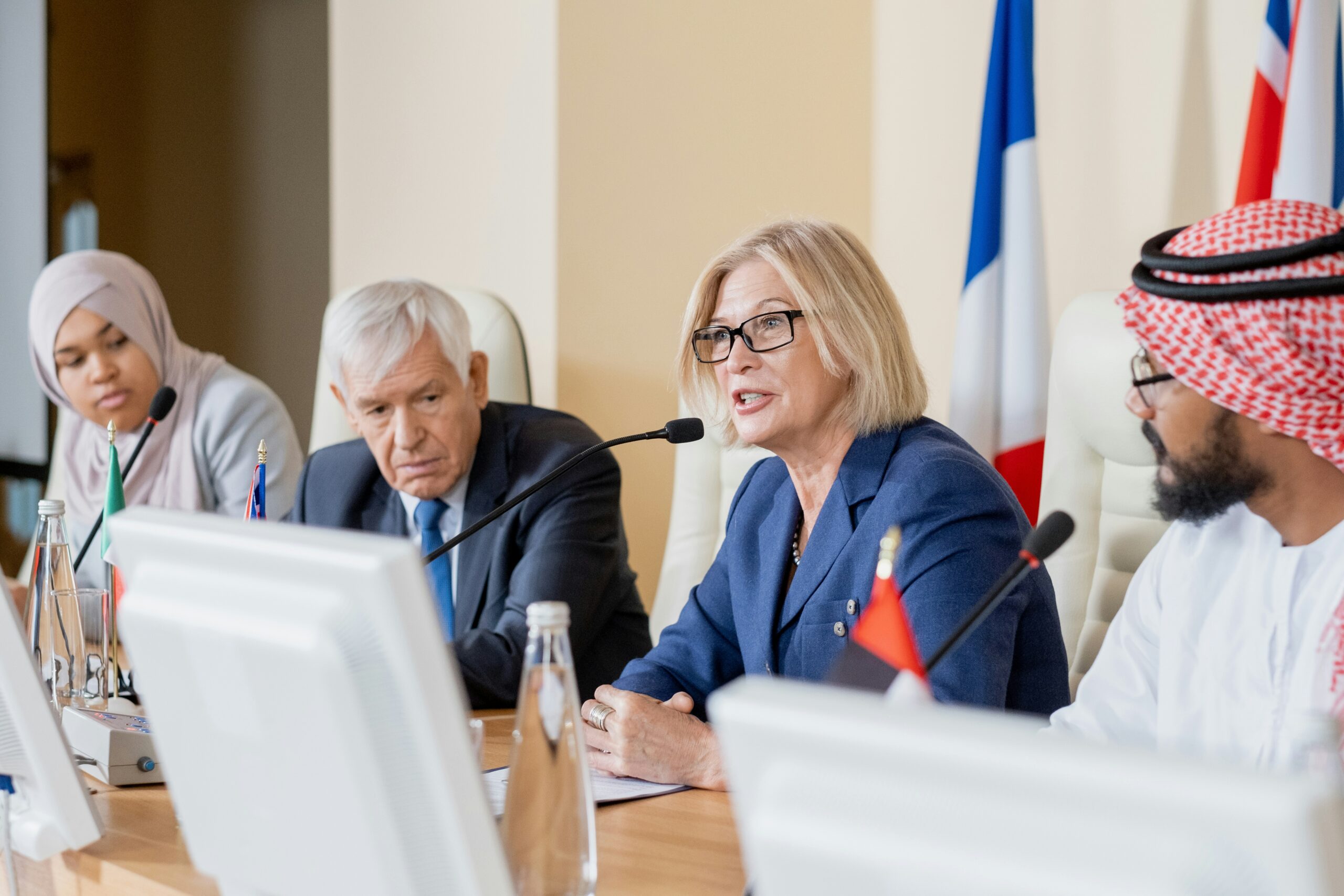
In today’s interconnected world, international relations are not just about treaties and trade agreements; they are the backbone of global stability. Nations rely on diplomacy to resolve conflicts, build alliances, and foster understanding among diverse cultures. Through open communication and cooperation, countries can navigate the complexities of globalization and ensure mutual respect in a shared global community.
Modern diplomacy goes beyond government officials in suits. It involves organizations, citizens, and corporations contributing to a global dialogue. The exchange of ideas, goods, and values has interdependent nations, turning isolationism into a relic of the past. International relations, therefore, act as the glue that binds the world together, helping prevent misunderstandings that could lead to unrest.
Diplomacy as a Tool for Peacebuilding
Diplomacy is often the first and most effective defense against war and conflict. It enables nations to communicate their interests and find common ground before disagreements escalate into violence. Through negotiation, mediation, and compromise, diplomats help transform hostility into cooperation. When conducted effectively, diplomacy builds trust and establishes long-term peace frameworks.
Beyond preventing wars, diplomatic engagement also supports rebuilding efforts after conflicts. Initiatives like peace treaties and international aid programs demonstrate how diplomatic channels foster healing. The rebuilding of war-torn countries through global partnerships underscores how diplomacy can convert the aftermath of conflict into an opportunity for unity and progress.
The Role of International Organizations
International organizations such as the United Nations (UN), the World Bank, and NATO play critical roles in maintaining peace and promoting cooperation. These entities provide platforms for nations to discuss security, development, and human rights. By fostering collaboration among diverse members, they reduce the risk of unilateral actions that could disrupt global order.
Such organizations also act as crisis mediators, offering humanitarian and conflict resolution support. For example, the UN Peacekeeping missions have successfully stabilized volatile regions, demonstrating the power of collective action. These multilateral efforts highlight that when countries unite for a shared cause, even the most complex conflicts can find paths toward resolution.
Global Trade and Economic Cooperation
Economic collaboration is another powerful driver of peaceful international relations. When countries trade and invest in one another, they create shared interests that discourage conflict. Economic interdependence transforms rivalries into partnerships, as one nation’s prosperity often contributes to another’s stability. This interconnectedness promotes peace rooted in mutual benefit rather than coercion.
Global trade agreements and international economic forums also encourage transparency and fair competition. Organizations like the World Trade Organization (WTO) ensure that economic disputes are settled diplomatically rather than through aggression. Ultimately, prosperity through cooperation becomes a cornerstone of peace, reminding nations that collaboration yields far greater rewards than confrontation.
Cultural Exchange and Mutual Understanding
Culture serves as a silent yet profound ambassador of peace. Through education, art, and tourism, nations exchange values that break stereotypes and reduce prejudice. These cultural interactions allow people from different backgrounds to find common ground in shared human experiences such as music, food, and storytelling. When people understand each other’s cultures, the fear of the unknown diminishes, paving the way for empathy.
Cultural diplomacy—such as international student programs or cross-border artistic collaborations—strengthens ties that political negotiations alone cannot achieve. It encourages dialogue at the grassroots level, where individuals, not just governments, participate in peacebuilding. By nurturing respect and appreciation for diversity, cultural exchange becomes an essential element in sustaining global harmony.
Technology and Global Communication
In the digital age, technology has revolutionized how nations and individuals interact. The rapid spread of information fosters transparency and accountability, reducing the chances of misinformation that can fuel conflicts. Social media, online diplomacy, and virtual summits allow instant communication across continents, helping leaders and citizens engage in real-time discussions about shared global concerns.
However, technology also poses challenges. Cybersecurity threats and digital misinformation can destabilize peace efforts. To address this, international cooperation on digital governance has become vital. By establishing ethical standards and joint security frameworks, nations can harness technology’s potential for peace while mitigating risks. This global digital collaboration ensures that innovation remains a bridge, not a barrier, to understanding.
Education and Global Citizenship
Education lays the foundation for peace by teaching tolerance, empathy, and values of global responsibility. When students learn about world cultures, history, and international cooperation, they become informed citizens who value dialogue over division. Educational exchange programs, scholarships, and partnerships between institutions worldwide nurture future leaders with a vision of unity.
Furthermore, global education initiatives address inequalities that often spark conflict. Programs that promote literacy, gender equality, and access to resources empower communities to thrive peacefully. As knowledge spreads, so does awareness of our shared humanity—reminding everyone that peace begins in the mind before it manifests in the world.
The Path Forward: A Shared Responsibility
The pursuit of global peace is not confined to diplomats or politicians—it is a collective endeavor. Individuals, corporations, and communities all have roles in shaping a more harmonious world. Small acts, like supporting fair trade or engaging in intercultural dialogue, contribute to a larger movement toward understanding and cooperation.
As international relations evolve, balancing national interests with global responsibilities remains challenging. Building global bridges requires continuous effort, compassion, and respect. Through collaboration, humanity can move beyond borders and differences, shaping a future where peace is an aspiration and a shared reality.